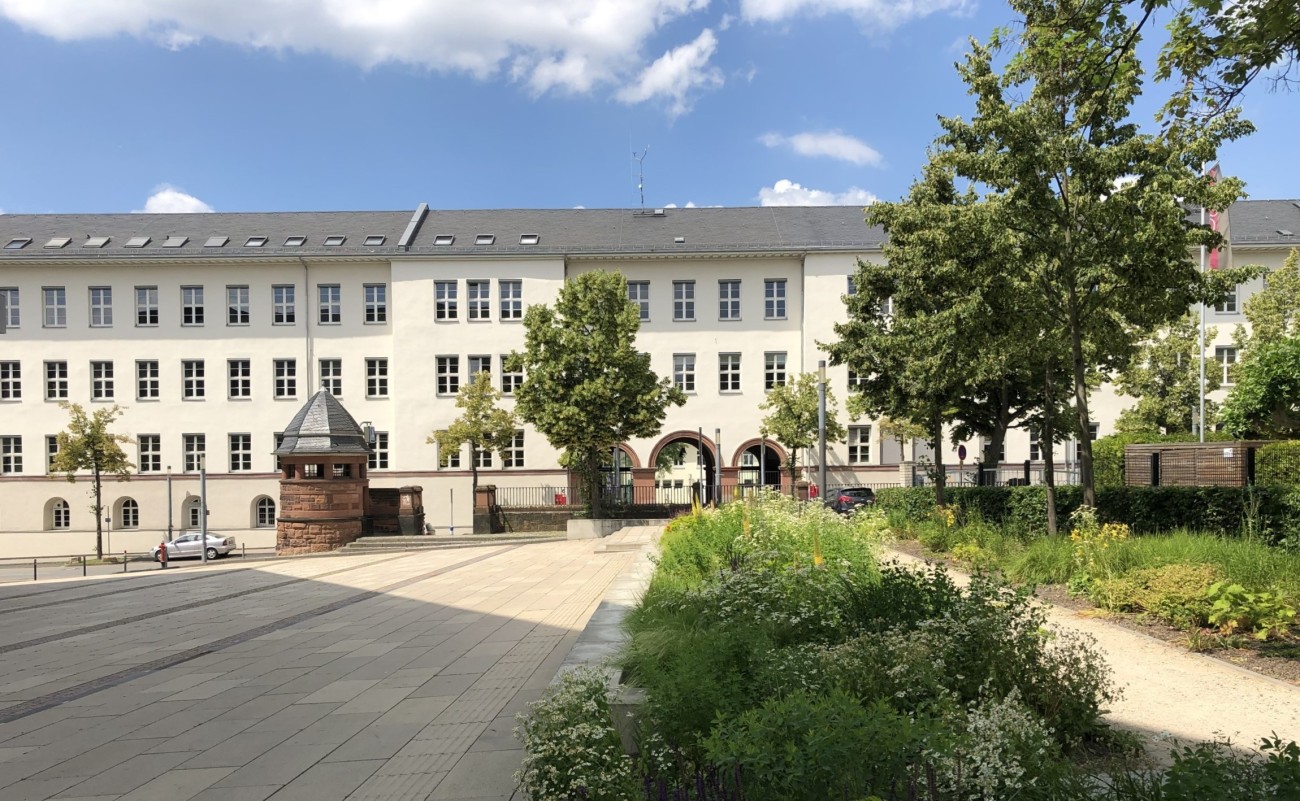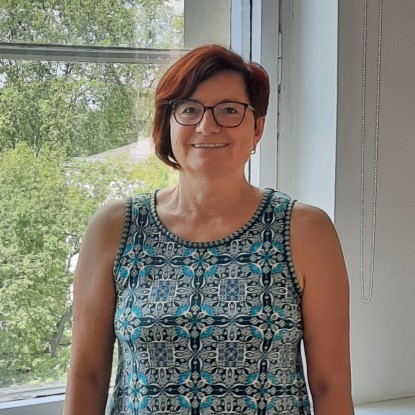There are numerous contacts with educational institutions in the region. These contacts are utilised at various levels:
- As a contact pool in which students are informed about opportunities to work in educational institutions, e.g. as part of events, work shadowing or internships.
- As co-operation partners for smaller research projects. Individual students are given the opportunity to work on research projects with cooperation partners and receive scientific guidance and supervision in the practice lab.
- As a research field for scientific theses.
- As cooperation partners for joint courses.
Cooperation partners
As part of the Vielfalt bildet! project, the Praxislabor cooperates with various civil society self-organisations in order to recognise their expertise. Current cooperation partners are
- the migrant self-organisation GinCo e. V.
- the migrant self-organisation Roza e.V.
- the self-organisation Diaspora Policy Interaction
The Evangelical Church of Hesse Nassau and the Praxislabor have been working together for many years. In 2007/08, the workshop ‘Quality is good’ was jointly designed and organised. A survey of educational needs in the deaneries of the EKHN was the subject of another co-operation. Ralf Mayer and Dr Astrid Messerschmidt were the research assistants here.
Furthermore:
Olga Zitzelsberger: Fokusgruppen zur Bedarfsermittlung, in: Zentrum Bildung der EKHN (ed.): Bildung gut geplant. Leitfaden und Instrumente zur Bedarfserschließung, Darmstadt, 2010.
- Annual training courses for teachers and students
- Support concepts and (new) forms of assessment as a contribution to a changed teaching culture, one-day training event on 3 May 2004
- PISA Colloquium II on 12 June 2003
An evaluation project has been running in cooperation with the German-Syrian Association (DSV) since 2016. As part of this, the practical laboratory at TU Darmstadt is evaluating the DSV's domestic project ‘Deutsch-Syrischer Verein – ein starker Partner in Darmstadt’ (http://ds-verein.org/deutsch-syrischer-verein-ein-starker-partner-der-stadt-darmstadt/), which the association has been carrying out in cooperation with the Office for Intercultural and International Affairs of the City of Darmstadt since 2016. The practical laboratory at TU Darmstadt is evaluating the work and development of the association based on document analyses as well as by conducting, processing and evaluating interviews with stakeholders involved in the DSV's domestic project. The aim of the project – the professionalisation of the DSV – is to be achieved through this scientific evaluation.
Sexism in advertising: ‘Nothing for women's hands’: The study was initiated by the Praxislabor of the TU Darmstadt and was carried out in co-operation with the Women's Office of the City of Darmstadt. The reason for this study was the exhibition ‘The Women's Zoo in Advertising’ in September 2007. The most striking results were that 95% of those surveyed did not want the images of women shown in advertising to be a role model for their daughter, girlfriend or niece. The majority of respondents also felt repelled or harassed by sexist advertising and wanted the issue to be problematised. They often mentioned school as a possible institutional field of action. Our most compelling consequence was the realisation that the images violate human rights and that there is a desire for change on the part of the population. It can therefore by no means be concluded that advertising only reflects existing structures, but that there is even a desire to break down stereotypical role models. Targeted political intervention is needed here to create new scope for action (also for education), which we have specifically named in a catalogue of recommendations.
Survey on computer programmes for children and young people in Darmstadt: Measures have now also been developed on this basis to support girls in choosing a career in the IT sector.
- The Praxislabor has been working with Haus am Maiberg in the field of adult education for many years. Among other things, the Heppenheim Gender Talks are organised annually together with other cooperation partners:Heppenheim Gender Talks for Men and Women.
- At the 5th symposium on labour market opportunities for women in the area of conflict between family and gainful employment, Dr Olga Zitzelsberger moderated the panel discussion at the end of the conference as well as the entire conference with Titus Möllenbeck (Haus am Maiberg):5th symposium on labour market opportunities for women in the area of conflict between family and gainful employment
A high degree of willingness to change is required of employees today. Due to the high pressure to innovate within the globalised world of work, the permanent reorganisation of work processes is the rule today. However, labour law protection provisions and aspects of co-determination are often implemented differently at the individual European sites.
In order to be able to implement their own rights and concerns in a targeted manner, employee representatives from the individual company locations must regularly exchange information in order to coordinate their strategies. European works councils need to be made fit for this task. To this end, the trade unions offer language courses as well as training courses, e.g. on legal principles or on working in international committees.
In a major international research project ‘Trans Quali-EWC’, funded by the European Union, the Hans Böckler Foundation and the Otto Brenner Foundation, employees of the practical laboratory of the Institute of General Education and Vocational Education are working together with other European trade unions and institutes to develop new qualification programmes for European works councils.
One of the aims of the co-operation is to develop a model concept for international EWC training courses, which will be adapted by the project partners (ETUI, Solidarnoc, Metalowców, Unite the union, and IG Metall) for their respective training courses.
As part of the media education project Diversity goes digital, students create explanatory videos on the difference categories of heteronormativity, ethnicity/racism, dis/ability, classism/milieu and intersectionality/multiple discrimination. They are supported in this by the living books.
Derman Aygün and Florian Klenk are responsible for the project.
Contact person for the Living Library: Sven Rasch
From 2018 to 2020, the Praxislabor will be responsible for the process evaluation of the project ‘Educational participation through parental empowerment – parental education work in and with primary schools in Darmstadt’. This is being implemented as part of the state programme ‘WIR – Wegweisende Integrationsansätze realisieren’. The project is organised by the Office for Intercultural and International Affairs of the City of Darmstadt. The project is coordinated and implemented by Mobile Praxis GmbH, which has many years of expertise in the areas of parental work, educational counselling, language and development support and school social work.
The aim of the project is intercultural openness, which is intended to strengthen both migrant parents in their role as parents in the school system and schools in dealing with diversity in the context of a migrant society. Migrant self-organisations are involved as key players in parental education work at schools.
The primary schools Bessunger Schule, Frankensteinschule and Wilhelm-Hauff-Schule are taking part in the project and, in consultation with the migrant self-organisations, have formulated goals to be achieved during the project period.
The evaluation team: Dr Olga Zitzelsberger, Mariam Amirpur and Sevim Dylong M.A.



